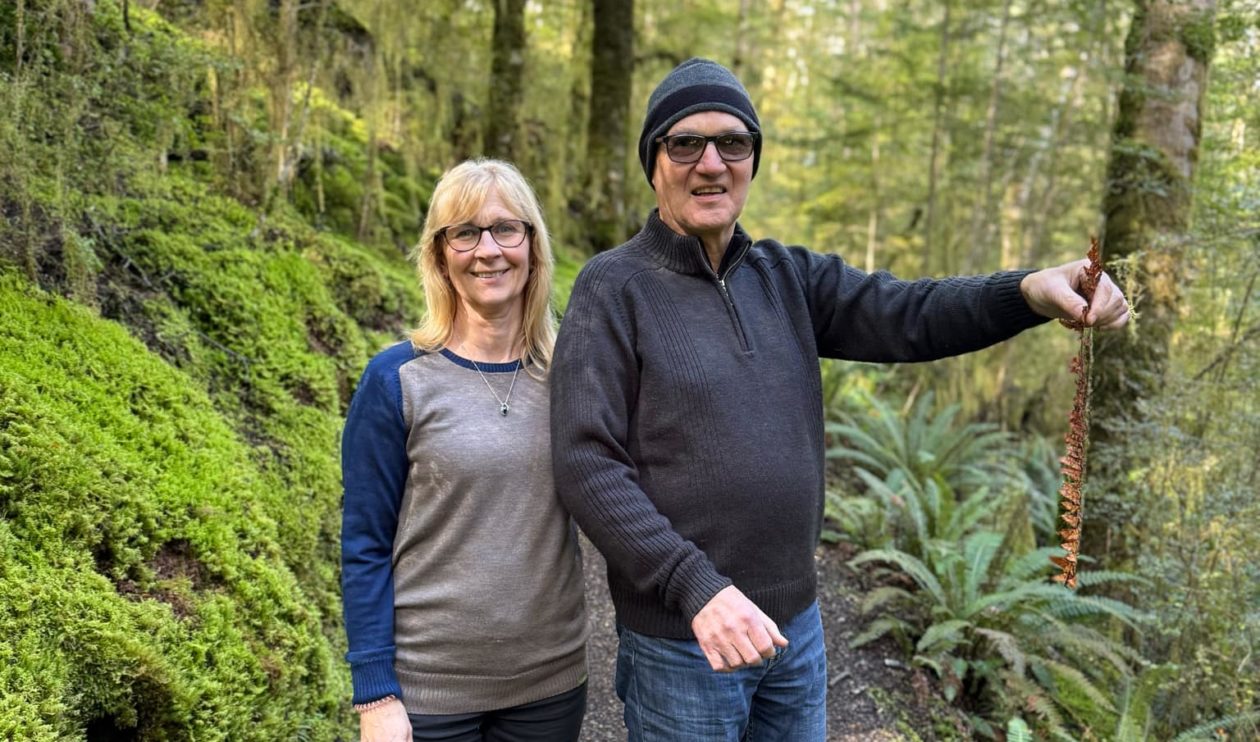Virginia’s story

Gerhard Hirner wasn’t his usual self when his dementia mate wareware journey began in 2017.
An avid hunter and fisher, the Invercargill-based businessman was always doing something – according to his wife, Virginia.
Gerhard said he felt like there was something not quite right, Virginia says.
Only 58-years-old at the time, Gerhard and Virginia went to see their GP. While the cognitive test had a low score, they had to wait six months before any decline in cognitive ability could be measured with a follow up test.
In the meantime, the couple travelled on a pre-planned trip to Austria to visit Gerhard’s family. While they were spending much more time than usual together, Virgina says the changes in her husband became more apparent.
“He couldn’t find some words in either English or German and couldn’t find things in the house he grew up in for 22 years, like spoons in the drawer,” she says.
On their return they received an appointment with the Geriatrician at the hospital, and after a range of tests an Alzheimers diagnosis was received.
On their next overseas trip in 2019, his condition was much more apparent. Affecting Gerhard’s driving, writing, reading, decision making and confidence.
“Most people forget their keys and wallet at times, but he was struggling with simple maths which had always been a strong area for him… however his long-term memory was still very good.”
While Gerhard was prescribed medication which helped with his progression, Virginia was struggling with a range of emotions which can come with a diagnosis – denial, fear and anger, to disbelief, dread and a sense of being overwhelmed.
“Overwhelmed is the word that most people I know in this situation use. I was trying to adjust to it however the goal posts kept moving all the time.”
“The imagery that comes to mind is a rapid leading to a waterfall and a pond. The rapid and waterfall keep moving and you want to be in the calm pond, not in the rushing rapid and waterfall.”
With one of their two grown-up children nearby and one in Christchurch, and the rest of their family living in their homelands of Austria and Australia, the emotions were relentless.
“Not having supportive close by extended family is a huge thing and I think it makes a massive difference to how you journey,” says Virginia.
“I became the brain for two people and was trying to find things to make him comfortable.”
Virginia was able to access rest home respite care at end of 2023 – up to two weeks.
Gerhard joined a day programme run by Gaius Cottage (Good Partners Company) up to twice a week, and this was a lifesaver. Gerhard was at home until October 2024.
On reflection, Virginia has recommendations which may have made their journey easier.
She advocates for 24/7 support – since dementia mate wareware never stops – and more funded types of dementia level respite care so care partners don’t burn out.
“It would’ve made a huge difference because I often felt alone trying to manage navigating the progression of the disease, making decisions and asking for help.
“Now I’m passing on some of what I’ve learnt to people I know, but I can see there are gaps.”
She said the financial implications – such as when people aren’t eligible for the pension but still need to care for their partner – only burden family more.
“Awareness programs, picnics, social events, memory walks are all good, however we need practical assistance to ease the load, this would keep people at home longer and make the journey more manageable.
“I believe the practical and emotional needs together are vital.”

